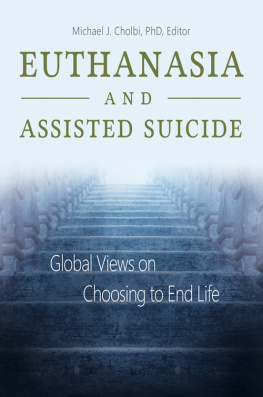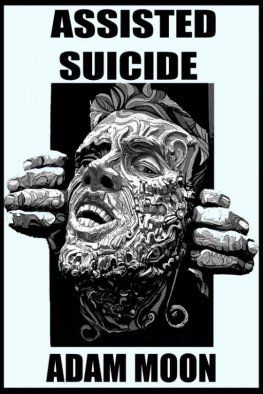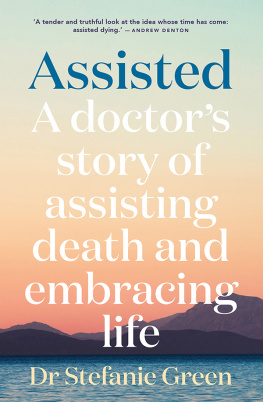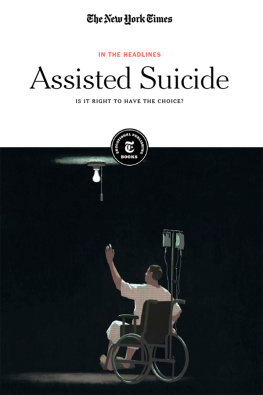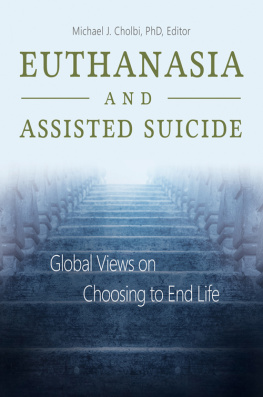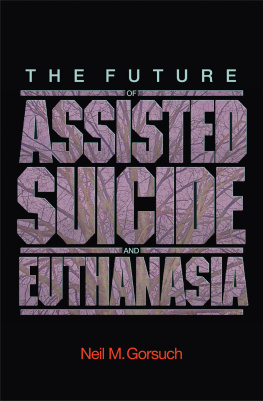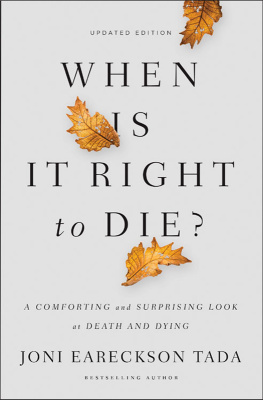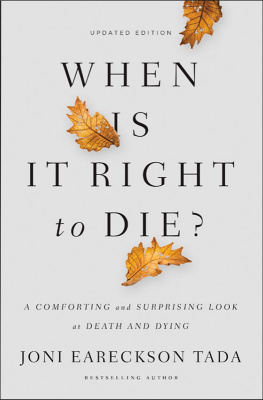Euthanasia and Assisted Suicide
Euthanasia and Assisted Suicide
Global Views on Choosing to End Life
Michael J. Cholbi, PhD, Editor

Copyright 2017 by Michael J. Cholbi
All rights reserved. No part of this publication may be reproduced, stored in a retrieval system, or transmitted, in any form or by any means, electronic, mechanical, photocopying, recording, or otherwise, except for the inclusion of brief quotations in a review, without prior permission in writing from the publisher.
Library of Congress Cataloging-in-Publication Data
Names: Cholbi, Michael, editor.
Title: Euthanasia and assisted suicide : global views on choosing to end life / Michael J. Cholbi, PhD, editor.
Description: Santa Barbara, California : Praeger, an imprint of ABC-CLIO, LLC, [2017] | Includes bibliographical references and index.
Identifiers: LCCN 2016033838 (print) | LCCN 2016039716 (ebook) | ISBN 9781440836794 (alk. paper) | ISBN 9781440836800 (ebook)
Subjects: LCSH: Euthanasia. | Assisted suicide.
Classification: LCC R726 .E97 2017 (print) | LCC R726 (ebook) | DDC 179.7dc23
LC record available at https://lccn.loc.gov/2016033838
ISBN: 978-1-4408-3679-4
EISBN: 978-1-4408-3680-0
21 20 19 18 17 1 2 3 4 5
This book is also available as an eBook.
Praeger
An Imprint of ABC-CLIO, LLC
ABC-CLIO, LLC
130 Cremona Drive, P.O. Box 1911
Santa Barbara, California 93116-1911
www.abc-clio.com
This book is printed on acid-free paper 
Manufactured in the United States of America
Contents
Introduction
Michael J. Cholbi
The modern discipline of medical ethics arose in the 20th century, largely due to increasing interest in three controversial areas of medical practice: medical research, abortion, and end-of-life decisions. End-of-life decisions in particular became an acute ethical issue due to the changing nature of how individuals die in advanced societies. Through the 20th century, dying became a more technologicaland often more prolongedexperience. Infectious diseases and injuries as causes of death decreased, and chronic conditions which kill more graduallysuch as cancerbecame more prominent. Moreover, technologies such as artificial nutrition and ventilation made it possible to extend biological life nearly indefinitely. The result of these developments is that how and when individuals die became a matter of choice to an unprecedented degree. Indeed, many human beings alive today will not die in a way that prior generations would recognize as entirely natural. Rather, they will die because someone (perhaps the individuals themselves, perhaps their family members or physicians) chooses a course of action that they know full well will hasten deathfor example, refusing (or ceasing) a potentially life-extending treatment or opting to remove life-sustaining medical interventions.
The most controversial way for a person to opt to die, however, is through assisted dying. This takes two main forms: euthanasia and assisted suicide. Under euthanasia, an individual dies when someone else (usually, though not necessarily, a physician or other medical professional) brings about the persons death through direct action or intervention and the person benefits from dying. An example of euthanasia is when an individual with a painful and incurable illness knowingly asks a doctor to administer a dose of a lethal sedative. Euthanasia can be voluntary, as in this example, but it need not be. Under assisted suicide, an individual dies after another person (most often a physician or other medical professional) provides material assistance in dying but the patient himself or herself administers the agent or performs the procedure that causes death. An example of assisted suicide is when an individual with a painful and incurable illness asks a doctor to prescribe a lethal dose of a sedative, which the patient later administers with the aim of causing death.
Euthanasia and assisted suicide raise crucial questions regarding the value of life; the goodness of death; and an individuals right to determine the length of his or her life, and the circumstances of his or her death. As even the most cursory review of popular media and academic scholarship indicate, assisted dying is controversial both morally and legally. The sheer volume of literature on the subject can be disorienting to newcomers interested in these controversies. This volume attempts to prevent such disorientation by introducing nonexpert readers to the central legal, political, and ethical issues associated with euthanasia and assisted suicide. Operating from a historical and cross-cultural perspective, the goal of this work is to familiarize readers with the moral, legal, and professional developments that have shaped contemporary debates about euthanasia and assisted suicide.
This book first explains the key concepts used in legal and ethical debates surrounding these practices, and then traces how various global traditions (e.g., Christianity, Asiatic) and societies (e.g., the United States, England, Mexico) have addressed the morality of such practices. It then turns to the key ethical and policy questions concerning euthanasia and assisted suicide. This volume outlines the main ethical arguments both for and against assisted dying, as well as relating assisted dying to other medical practices, such as palliation and advance directives.
The authors of the chapters in this book have striven to present the core issues surrounding euthanasia and assisted suicide in an accessible and nontechnical way. Although these articles only scratch the surface of the numerous complex issues raised by these phenomena, they (along with the chapter bibliographies) nevertheless should leave readers well-positioned to investigate these issues further on their own.
As the discussions in this volume attest, however, the overall global trend with respect to assisted dying is toward general societal acceptance and legal permissiveness. Euthanasia and assisted suicide no longer are purely hypothetical phenomena. To the extent that the moral and legal justifiability of euthanasia and assisted suicide turn on the consequences of social or legal acceptance, we now have far more evidence about these consequences than we did in the past. Yet different communities have responded to the prospect of assisted dying in different wayscolored by their respective ethical and religious commitments. The legal and moral landscape surrounding assisted dying thus is far more diverse than it was just several decades ago.
That said, these communities nevertheless seem to be engaging in the same underlying controversies: Whether assisted dying is ever truly a benefit to a person; how assisted dying fits within various religious outlooks; whether assisted dying should be construed as a right; the role of the medical profession in the provision of assisted dying; and who should be eligible for assisted dying and under what circumstances. The debates ensure that although the moral and legal controversies surrounding assisted dying might dim they are not likely to be fully extinguished in the near future.
PART I
History, Practice, and Law
CHAPTER ONE
Physician-Assisted Dying and the Law in the United States: A Perspective on Three Prospective Futures
Arthur G. Svenson
The movement to legalize physician-assisted dying (PAD) in the United States is, at its core, one that focuses on a terminally ill competent adult (TICA) who, because of unbearable pain and suffering, seeks a physicians assistance to hasten death. Considerone among countless others similarly situatedthe declaration of Jane Roe, one of the original litigants in
Next page
